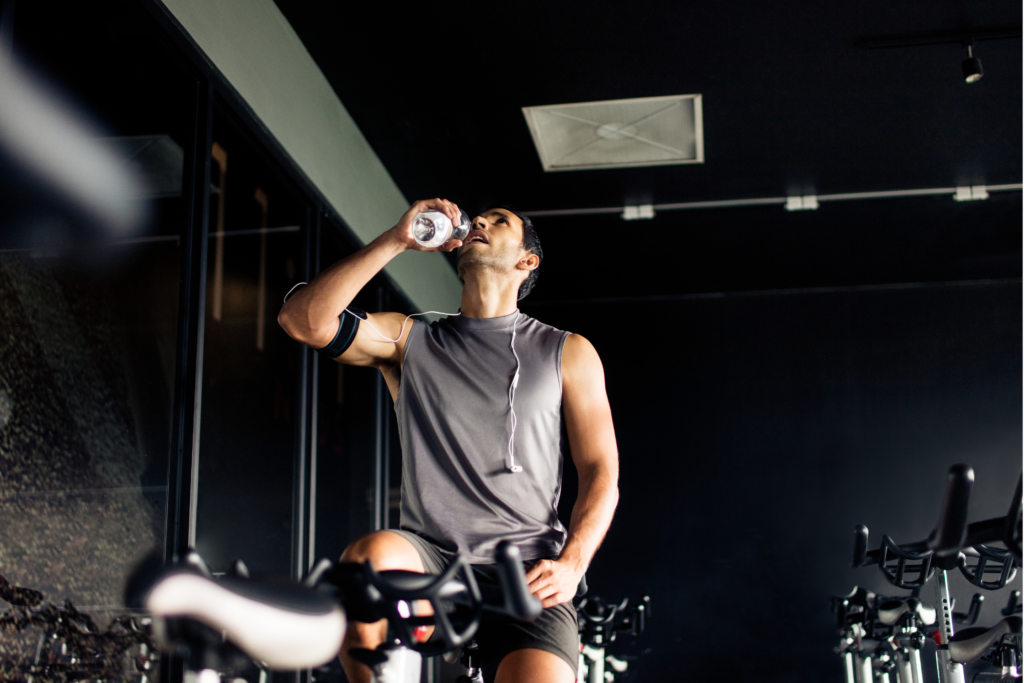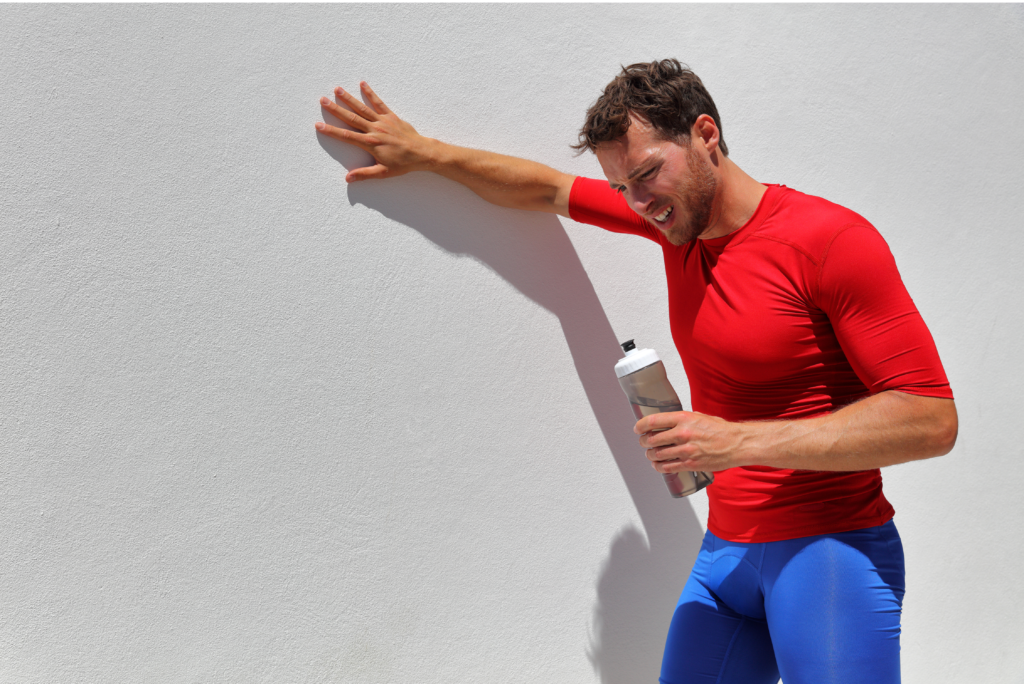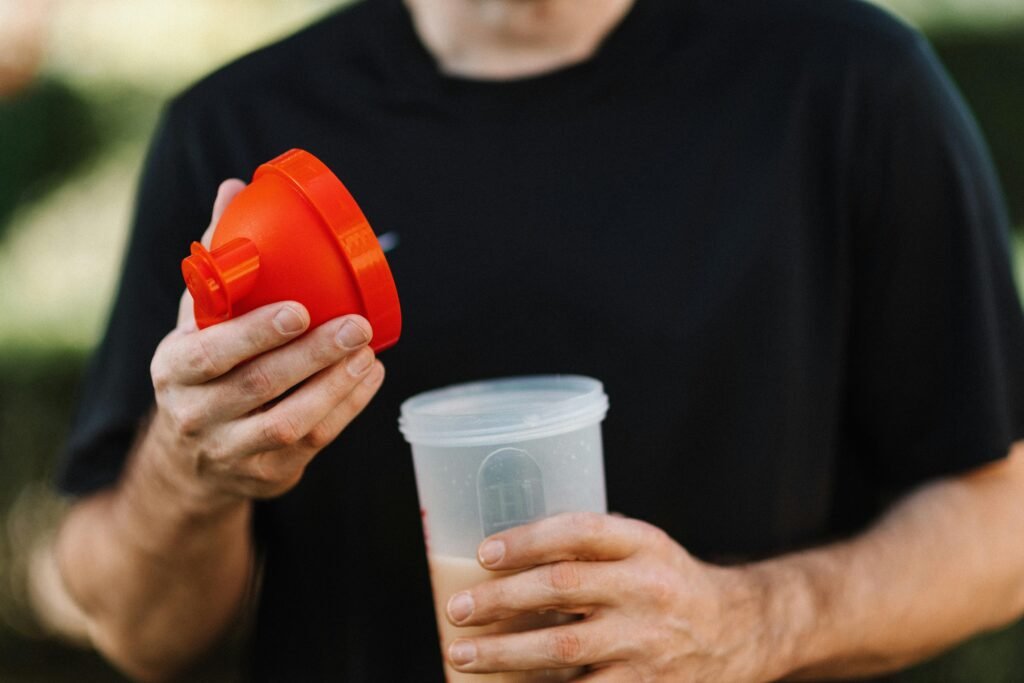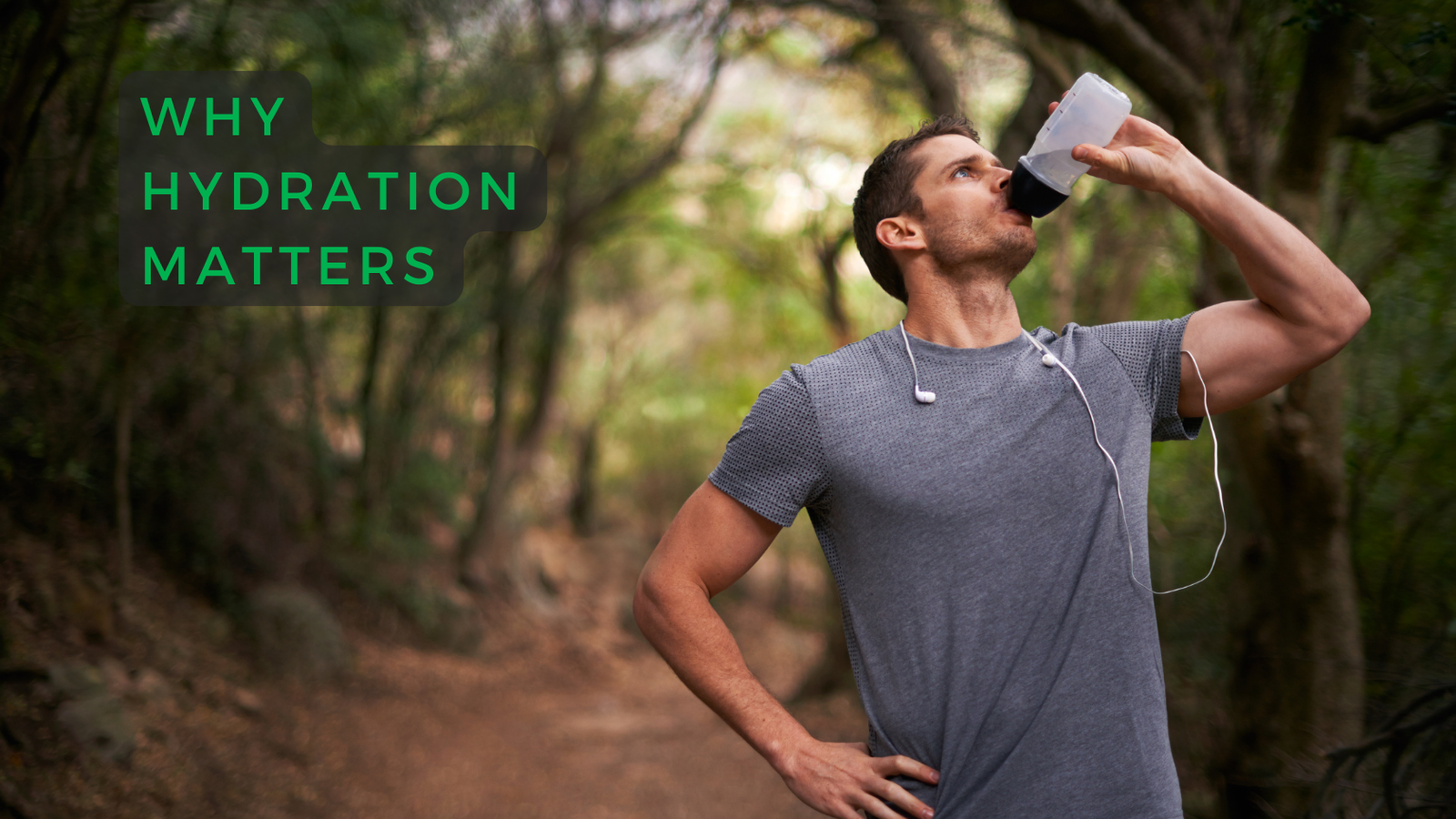Hydration levels are often overlooked, yet it’s a fundamental aspect of maintaining good health. Whether you’re a fitness enthusiast, an office worker, or simply someone trying to lead a healthier lifestyle, understanding the role of hydration is crucial. In this guide, we’ll explore why hydration is essential for physical health, how much water you need, and practical tips for staying hydrated. By the end of this post, you’ll have a clear understanding of how to keep your body well-hydrated and why it’s so important for your overall well-being.
Table of Contents
Why Hydration is Important
Water makes up about 60% of the human body, playing a critical role in almost every bodily function. Here are some key reasons why staying hydrated is vital:
1. Regulates Body Temperature
Water helps regulate your body temperature through sweating and respiration. When you exercise or are exposed to hot conditions, your body sweats to cool down. This sweat evaporates from your skin, releasing heat and helping to maintain a stable internal temperature. Without enough water, your body cannot produce sufficient sweat, leading to overheating and potentially serious conditions like heatstroke.
2. Supports Digestion and Nutrient Absorption
Adequate hydration ensures that your digestive system functions smoothly. Water aids in breaking down food in the stomach and helps transport nutrients through the digestive tract. When you’re well-hydrated, your body can more efficiently absorb vitamins, minerals, and other essential nutrients from the food you eat. Without sufficient water, the digestive process can slow down, leading to issues like constipation and indigestion.
3. Maintains Blood Volume and Circulation
Proper hydration helps maintain an optimal blood volume, which is essential for the efficient transportation of oxygen and nutrients to cells. Blood is about 90% water, and when you’re dehydrated, your blood becomes thicker and more concentrated. This can make it harder for your heart to pump blood effectively, leading to increased heart rate and blood pressure. Adequate hydration ensures that your blood remains fluid, facilitating smooth circulation and better overall cardiovascular health.
4. Lubricates Joints and Cushions the Brain, Spinal Cord, and Other Tissues
Water acts as a lubricant and cushion for your joints, reducing the risk of friction and wear. This is crucial for preventing joint pain and injuries, particularly during physical activities like running, jumping, or lifting weights. Additionally, water is essential for protecting your brain, spinal cord, and other sensitive tissues. It provides a cushioning effect, helping to absorb shock and reduce the risk of injury.
5. Flushes Out Toxins and Waste Products
Your kidneys rely on water to filter waste products from the blood and excrete them through urine. This detoxification process is vital for maintaining the body’s internal environment. When you’re adequately hydrated, your kidneys can function efficiently, removing toxins and waste products that accumulate from normal metabolic processes. Dehydration can impair kidney function, leading to a buildup of waste and increased risk of kidney stones and urinary tract infections.
6. Supports Cellular Function and Energy Production
Every cell in your body depends on water to function properly. Water is involved in numerous cellular processes, including energy production and maintaining cell structure. Hydration is crucial for ensuring that cells have the environment they need to perform their functions efficiently. When cells are dehydrated, their ability to generate energy and carry out essential tasks is compromised, leading to fatigue and decreased physical performance.
7. Aids in Weight Management
Drinking water can also play a role in weight management. Sometimes, our bodies can mistake thirst for hunger, leading us to eat when we really just need a glass of water. Staying hydrated can help control appetite and prevent overeating. Additionally, water has no calories, making it an excellent choice for staying hydrated without adding extra calories to your diet.
8. Enhances Skin Health
Water is essential for maintaining healthy skin. Proper hydration helps to keep your skin moisturized, improving its elasticity and appearance. When you’re dehydrated, your skin can become dry, tight, and more prone to wrinkles and other signs of aging. Drinking enough water supports skin health, giving you a more youthful and vibrant appearance.
9. Boosts Cognitive Function
Adequate hydration is important for maintaining cognitive function. The brain is highly sensitive to changes in hydration levels, and even mild dehydration can impair concentration, alertness, and short-term memory. Staying well-hydrated ensures that your brain receives the necessary fluids to function optimally, enhancing mental clarity and cognitive performance.
10. Promotes Overall Well-Being
Finally, staying hydrated contributes to your overall sense of well-being. Proper hydration supports physical performance, mental clarity, and emotional stability. When you’re well-hydrated, you’re more likely to feel energetic, focused, and capable of tackling daily challenges.

How Much Water Do You Need?
The amount of water each person needs can vary based on factors like age, gender, activity level, and climate. However, a common recommendation is the “8×8 rule” – drinking eight 8-ounce glasses of water a day, which equals about 2 liters or half a gallon.
Individual Factors Influencing Water Needs:
- Physical Activity: Active individuals need more water to compensate for fluid lost through sweat. During intense exercise, you can lose several liters of water per hour. It’s important to drink before, during, and after your workout to stay hydrated.
- Environment: Hot or humid climates increase your need for water. Even in cooler climates, higher altitudes can lead to increased urination and more rapid breathing, both of which use up more of your body’s water reserves.
- Overall Health: Conditions like fever, diarrhea, or vomiting require increased fluid intake to replace fluids lost. Chronic conditions such as diabetes and certain medications like diuretics can also affect how much water you need.
- Diet: Consuming a lot of salty or sugary foods may increase your need for water. High-protein diets also require more water to help the kidneys flush out the byproducts of protein metabolism. Conversely, diets rich in water-dense foods like fruits and vegetables contribute to your fluid intake.
General Guidelines:
- Women: About 2.7 liters (91 ounces) of total water per day, including all beverages and foods.
- Men: About 3.7 liters (125 ounces) of total water per day, including all beverages and foods.
These recommendations include all fluids consumed, not just water. Approximately 20% of daily fluid intake usually comes from food, with the remaining 80% from drinks. So, for a more precise recommendation:
- Women should aim for about 2.2 liters (9 cups) of beverages.
- Men should aim for about 3 liters (13 cups) of beverages.
Special Considerations:
- Pregnant or Breastfeeding Women: Pregnant women should drink about 2.4 liters (10 cups) of fluids daily, while breastfeeding women should aim for 3.1 liters (13 cups) to stay hydrated.
- Elderly: As people age, their sense of thirst may diminish, making it essential for older adults to consciously ensure they are drinking enough water.
Monitoring Hydration:
An easy way to monitor your hydration status is to check the color of your urine. Light yellow or pale straw-colored urine generally indicates proper hydration, while darker urine can be a sign that you need to drink more fluids.
Signs of Dehydration
Recognizing the signs of dehydration is crucial. Some common symptoms include:
Recognizing the signs of dehydration is crucial for maintaining good health. Dehydration occurs when you lose more fluids than you take in, and your body doesn’t have enough water to carry out its normal functions. Here are some common symptoms to watch for:
Mild to Moderate Dehydration
- Thirst: The most obvious sign. If you feel thirsty, your body is already slightly dehydrated.
- Dry Mouth and Throat: A parched feeling in your mouth and throat can indicate low hydration levels.
- Dark Yellow Urine: Ideally, your urine should be light yellow. Darker shades suggest dehydration.
- Decreased Urine Output: Urinating less frequently than usual, or producing small amounts of urine, can be a sign of dehydration.
- Dry Skin: Skin that appears dry, less elastic, or has a rough texture may indicate a lack of hydration.
- Headache: Dehydration can cause headaches or migraines, as the brain temporarily contracts from fluid loss, causing pain.
- Dizziness or Lightheadedness: A lack of fluids can affect your body’s balance and coordination, leading to dizziness.
- Fatigue: Dehydration can make you feel tired and lethargic, as your body struggles to perform essential functions without adequate fluids.
Severe Dehydration
Severe dehydration is a medical emergency and requires immediate attention. Signs include:
- Extreme Thirst: A persistent, intense feeling of needing to drink.
- Very Dark Urine: Urine that is amber-colored or darker.
- Rapid Heartbeat: An unusually fast heart rate, as your heart works harder to pump blood.
- Rapid Breathing: Breathing that is faster than normal.
- Sunken Eyes: Eyes that appear sunken into the sockets.
- Very Dry Skin and Mucous Membranes: Skin that is extremely dry and does not bounce back when pinched, along with a dry mouth, nose, and eyes.
- Low Blood Pressure: A significant drop in blood pressure when moving from a sitting or lying position to standing, causing dizziness or fainting.
- Confusion or Irritability: Difficulty thinking clearly, disorientation, or unusual irritability.
- Lack of Sweating: Even in hot conditions or during physical activity, you may not sweat if severely dehydrated.
- Unconsciousness: In extreme cases, dehydration can lead to a loss of consciousness.

Tips for Staying Hydrated
Maintaining proper hydration doesn’t have to be complicated. Here are some practical tips:
1. Carry a Water Bottle
Having a water bottle with you at all times can remind you to drink water regularly.
2. Set Reminders
Use your phone or a hydration app to set reminders to drink water throughout the day, especially if you’re prone to forgetting.
3. Eat Water-Rich Foods
Fruits and vegetables like cucumbers, watermelon, and oranges have high water content and contribute to your overall hydration.
4. Drink Before You’re Thirsty
Try to drink water regularly rather than waiting until you feel thirsty, as thirst is a late indicator of dehydration.
5. Monitor Your Urine
Keep an eye on the color of your urine. Aim for a light yellow color, indicating adequate hydration.
6. Adjust for Activity and Weather
Increase your water intake when you’re more active or during hot weather to compensate for the extra fluid loss.
7. Include Electrolytes
Electrolytes are minerals that help maintain your body’s fluid balance and support nerve and muscle function. Common electrolytes include sodium, potassium, calcium, and magnesium. You can get these from:
- Sports Drinks: Designed to replenish electrolytes lost through sweat.
- Coconut Water: A natural source of potassium and other electrolytes.
- Electrolyte Tablets or Powders: Convenient options to add to your water.
- Natural Foods: Bananas, spinach, and avocados are rich in potassium, while dairy products and leafy greens are good sources of calcium and magnesium.
8. Use Rehydration Supplements
When you need a quick rehydration boost, especially after intense exercise or illness, consider supplements that include:
- Oral Rehydration Solutions (ORS): Contain a precise balance of electrolytes and glucose, designed to quickly replenish fluids and electrolytes.
- Hydration Powders: Mix with water to create a drink that contains essential electrolytes and often added vitamins for an extra health boost.
- Electrolyte-Infused Water: Ready-to-drink options available in many stores, providing convenience and hydration benefits.

Conclusion
Understanding the role of hydration in physical health is the first step towards a healthier lifestyle. Water is essential for numerous bodily functions, from regulating body temperature to supporting digestion, circulation, and joint health. Proper hydration ensures that your body can perform at its best, whether you’re engaging in physical activity, working at a desk, or simply going about your daily routine.
By staying mindful of your water intake and recognizing the signs of dehydration, you can maintain optimal hydration levels. Remember to drink regularly, even before you feel thirsty, and adjust your fluid intake based on your activity level, environment, and overall health. Incorporating water-rich foods and electrolyte supplements can also help you stay hydrated.
Staying hydrated is a simple yet powerful way to enhance your overall well-being. It supports physical performance, cognitive function, and emotional stability, helping you feel more energetic, focused, and capable of tackling daily challenges.



